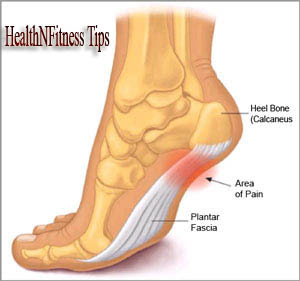HealthNFitness Tips: High heels and other snug-fitting or pointed shoes are a leading cause of ingrown toenails, by putting constant pressure on the toes, the big toenails can grow into the skin and cause an infection, yet many women are unwilling to trade in their heels for more practical shoes.

Women who wear heels to take the following steps to prevent ingrown toenails:
- Trace each foot on cardboard and cut it out. Be sure the cutouts fit into a new pair of shoes before buying them to ensure they are not too narrow.
- Avoid wearing tight stockings.
- Don't wear heels longer than necessary.
- Avoid walking too far or standing too long in heels.
- Cut toenails straight across the top.
- Soak feet using Epsom salts or a soapy, lukewarm bath.
- Make sure feet are dried well with a clean towel.
- Apply a mild antiseptic to the toes.
If a toe becomes painful, swollen or has a discharge, it is likely infected and needs to be treated by a podiatrist. If the condition resists treatment, the toenail can be removed.






